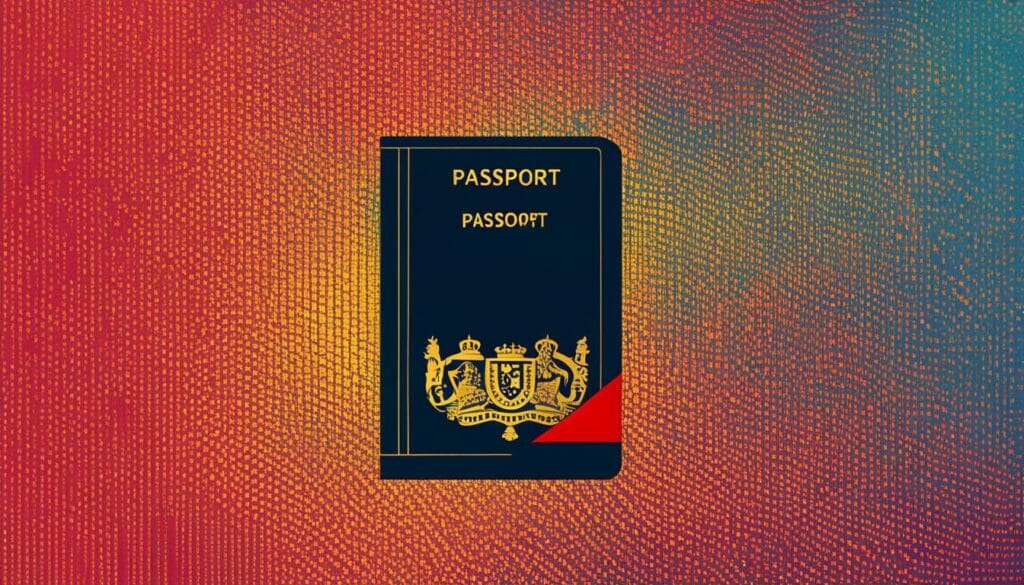Spain has finally introduced a digital nomad visa, allowing non-EU nationals to live and work in the country for up to five years. The visa was approved as part of the new Startup Act, aiming to attract entrepreneurship and boost the tech scene in Spain. The visa is open to remote workers and self-employed freelancers who work for non-Spanish companies. Applicants need to prove their work experience, income stability, qualifications, and a clean criminal record. The visa is initially valid for 12 months and can be extended for up to five years, with the ability to travel throughout the EU.
Key Takeaways:
- Spain has introduced a digital nomad visa for non-EU nationals.
- The visa is open to remote workers and self-employed freelancers working for non-Spanish companies.
- Applicants need to meet specific requirements including work experience, income stability, and qualifications.
- The visa is initially valid for 12 months and can be extended for up to five years.
- Spain’s digital nomad visa allows for travel throughout the EU.
Start your Spanish Immersion experience with Vamos Academy, your Spanish Language School in Malaga, and School in Buenos Aires, and Online.
Who can apply for Spain’s digital nomad visa?
The digital nomad visa in Spain is open to non-EU nationals who work remotely for non-Spanish companies. Both self-employed freelancers and remote workers employed by a single company outside of Spain are eligible. The following are the key eligibility criteria for applying:
- Applicants must be from outside of the European Economic Area.
- Applicants must not be living illegally in Spain.
- Applicants must have worked with their clients or company for more than three months before applying.
- Applicants need to demonstrate work experience or qualifications in their field.
These requirements ensure that the digital nomad visa is accessible to those who can contribute to the Spanish economy and fulfill the objectives of the Startup Act.

| Eligibility Criteria | Requirements |
|---|---|
| Nationality | Non-EU nationals |
| Residential Status | Not living illegally in Spain |
| Work Experience | More than three months with clients or company |
| Qualifications | Work experience or relevant qualifications |
By providing opportunities for non-European nationals to live and work in Spain, the digital nomad visa encourages the growth of the tech scene, diversifies the workforce, and promotes entrepreneurship in the country.
Quote: “The digital nomad visa in Spain is a great opportunity for remote workers and freelancers from all over the world to experience the vibrant culture and quality of life that Spain offers,” says Maria Lopez, a digital nomad currently living in Barcelona.
What are the requirements for Spain’s digital nomad visa?
In order to apply for Spain’s digital nomad visa, applicants must meet certain requirements to be eligible for the program. These requirements include:
- Proving income stability: Applicants need to demonstrate that they earn enough money to be self-sufficient during their stay in Spain. The income threshold is set at 200% of the country’s monthly minimum wage.
- Work experience or qualifications: Applicants must provide proof of their work experience or qualifications in their field. This can be in the form of a resume, portfolio, or certifications.
- Clean criminal record: To be eligible for the visa, applicants must have no criminal record in Spain or the country where they have resided in the past five years. This requires obtaining a police clearance certificate or equivalent document.
- Social security coverage: Proof of social security coverage from the applicant’s country of origin is also required. This ensures that applicants have access to healthcare and other social benefits during their stay in Spain.
Meeting these requirements is essential to successfully apply for Spain’s digital nomad visa. It is important for applicants to gather all the necessary documentation and meet the eligibility criteria to increase their chances of obtaining the visa.
In order to apply for Spain’s digital nomad visa, applicants must meet specific requirements, including proving income stability, demonstrating work experience or qualifications, having a clean criminal record, and providing proof of social security coverage.
| Requirements | Description |
|---|---|
| Income Stability | Applicants must show that they earn enough money to be self-sufficient in Spain, with an income threshold set at 200% of the country’s monthly minimum wage. |
| Work Experience or Qualifications | Proof of work experience or qualifications in the applicant’s field of expertise is required, such as a resume, portfolio, or certifications. |
| Clean Criminal Record | Applicants must have no criminal record in Spain or the country they have resided in during the past five years. A police clearance certificate or equivalent document is necessary. |
| Social Security Coverage | Proof of social security coverage from the applicant’s country of origin is required to ensure access to healthcare and social benefits during their stay in Spain. |
Fulfilling these requirements is crucial for a successful application process and obtaining the digital nomad visa in Spain.
How long are digital nomads allowed to stay in Spain?
Digital nomad visas in Spain are initially valid for 12 months, with the possibility to extend for up to five years. Once in Spain, applicants can apply for a three-year residency permit, which can be renewed for a further two years. To maintain the visa, digital nomads must not be absent from the country for more than six months per year.
Staying in Spain for an extended period provides digital nomads with the opportunity to fully immerse themselves in the country’s culture, explore its beautiful landscapes, and enjoy a high quality of life. The ability to travel within the EU also adds to the appeal of living and working in Spain.
It’s important for digital nomads to note the requirements and obligations associated with the visa. Failure to comply with the residency rules could result in the visa being revoked, leading to potential legal consequences and limitations on future travel and work opportunities in Spain.
Table: Spain Residence Permit Duration
| Visa Type | Initial Validity | Possible Extensions | Maximum Stay |
|---|---|---|---|
| Digital Nomad Visa | 12 months | Up to five years | Cannot exceed six months absence per year |
| Residency Permit | Three years | Renewable for two years | N/A |
With the flexibility of the digital nomad visa and the opportunity to obtain long-term residency, Spain offers an attractive option for digital nomads seeking stability and a base for their remote work endeavors.
How to Apply for Spain’s Digital Nomad Visa
If you’re ready to embark on a digital nomad adventure in Spain, applying for the digital nomad visa is your first step. There are two ways to apply for the visa: directly through a consulate or embassy in your home country or by entering Spain on a tourist visa and applying within the first three months of your arrival. Whatever option you choose, make sure you have all the required documentation prepared.
Here’s a checklist of the documents you’ll need to submit:
- Completed application form
- Proof of payment for the administrative fee
- A copy of your passport
- Proof of your qualifications or work experience
- Proof of employment and income
- Proof of social security coverage
It’s important to note that response times for visa applications can vary, so it’s best to be prepared for potential delays. Once your application is approved, you’ll be on your way to living and working as a digital nomad in Spain.
For a visual representation of the application process, refer to the table below:
| Step | Description |
|---|---|
| 1 | Choose your application method – consulate/embassy or within Spain |
| 2 | Prepare the required documentation |
| 3 | Submit your application |
| 4 | Wait for a response |
| 5 | If approved, pack your bags and start your digital nomad journey in Spain |

With the digital nomad visa, Spain welcomes remote workers and freelancers from around the world to experience its vibrant culture, stunning landscapes, and thriving digital nomad community. So, don’t wait any longer – start your Spanish immersion experience with Vamos Academy, your Spanish Language School in Malaga, Buenos Aires, and Online Classes.
Do digital nomads get tax breaks in Spain?
One of the key advantages of being a digital nomad in Spain is the potential tax benefits. Digital nomads who work remotely for a foreign company can qualify for a reduced tax rate during the first four years of their stay. The reduced rate stands at 15% as long as their income is below a certain threshold. This offers significant tax savings and allows digital nomads to optimize their finances while enjoying the benefits of living and working in Spain.
By taking advantage of these tax breaks, digital nomads can allocate more of their income towards their business or personal goals. This can provide financial stability and opportunities for growth, making Spain an attractive destination for those seeking a favorable tax environment while pursuing their nomadic lifestyle.
“The reduced tax rate for digital nomads in Spain is a game-changer. It allows us to save a substantial amount on taxes and reinvest that money into our businesses.”
– Digital nomad testimonial
It is important for digital nomads to consult with a tax professional to ensure they meet all the requirements and take full advantage of the available tax benefits. This will help them navigate the complexities of the tax system and maximize their savings. By being proactive and informed about their tax obligations, digital nomads can enjoy the advantages of Spain’s digital nomad visa while optimizing their financial situation.
| Benefits of Spain’s Digital Nomad Visa | Tax Breaks | Extended Residency | Ability to Travel within the EU |
|---|---|---|---|
| Allows non-EU nationals to live and work in Spain | Reduces tax rate to 15% for the first four years | Visa can be extended for up to five years | Freedom to travel within the European Union |
| Attracts entrepreneurship and boosts the tech scene | Potential tax savings and financial stability | Opportunity to apply for a three-year residency permit | Explore and experience different countries and cultures |
| Open to remote workers and self-employed freelancers | Optimize finances while pursuing a nomadic lifestyle | Ability to establish a long-term presence in Spain | Access to a wide range of work and travel opportunities |
Why is Spain popular with digital nomads?
Spain is already a popular destination for digital nomads due to its low cost of living, good internet speeds, and warm weather. The country offers a high quality of life, with cities like Valencia and Barcelona being recognized as top destinations for expats. Spain’s cultural attractions, beautiful landscapes, and vibrant cities make it an appealing choice for digital nomads looking for a balance between work and leisure.
When it comes to the cost of living, Spain offers affordable options compared to other European countries. Accommodation, food, and transportation costs are relatively reasonable, allowing digital nomads to stretch their budgets. This affordability combined with the country’s stunning beaches, historic landmarks, and vibrant street life make it an attractive place to live and work.
Additionally, Spain has excellent internet infrastructure, with reliable and fast internet connections available in most cities. This is crucial for digital nomads who rely on a stable internet connection to work remotely. Whether working from a coworking space, a local café, or their own accommodation, digital nomads in Spain can expect a seamless online experience.
The country’s warm climate is another major draw for digital nomads. With its mild winters and long sunny days, Spain offers an outdoor lifestyle that can be enjoyed year-round. This allows digital nomads to take advantage of the country’s natural beauty, engage in outdoor activities, and explore its many tourist attractions during their free time.
In conclusion, Spain’s low cost of living, good internet speeds, warm weather, and high quality of life make it a popular destination for digital nomads. Whether they are looking for affordable living options, reliable internet connections, or a pleasant climate, Spain offers a desirable environment for remote work and a fulfilling lifestyle.
Working remotely in Spain as an EU citizen
As an EU citizen, you have the advantage of freedom of movement within the European Union, which means you can work remotely in Spain without the need to apply for a digital nomad visa. This allows you to enjoy the benefits of living and working in Spain without the additional paperwork and requirements.
However, it’s important to note that as an EU citizen working remotely in Spain, you still have tax obligations. If you spend more than 183 days in the country during a calendar year, you are considered a tax resident and will need to file taxes in Spain. It’s essential to familiarize yourself with the tax laws and regulations to ensure compliance and avoid any potential issues.
Working remotely in Spain as an EU citizen provides an opportunity to experience the country’s vibrant culture, beautiful landscapes, and excellent quality of life. Whether you choose to live in bustling cities like Barcelona or relax in coastal towns like Malaga, Spain offers a diverse range of options for digital nomads seeking a balance between work and leisure.
So if you’re an EU citizen looking to work remotely in Spain, you can take advantage of the freedom of movement and explore all that this captivating country has to offer while pursuing your professional goals.

Table: Tax Obligations for EU Citizens Working Remotely in Spain
| Residency Status | Tax Obligations |
|---|---|
| Non-resident (less than 183 days in a calendar year) | No tax obligations in Spain |
| Resident (more than 183 days in a calendar year) | Required to file taxes in Spain |
The Best Digital Nomad Destinations in Spain
If you’re considering Spain as your next digital nomad destination, you’re in for a treat. The country offers a wide range of cities and regions that are perfect for remote workers and freelancers. Whether you prefer the bustling streets of Barcelona, the cultural charm of Valencia, or the vibrant energy of Madrid, Spain has something for everyone.
Here are some of the top digital nomad destinations in Spain:
- Barcelona: Known for its stunning architecture and vibrant nightlife, Barcelona is a popular choice for digital nomads. The city is home to numerous coworking spaces, cafes, and innovative ecosystems.
- Valencia: With its beautiful beaches and laid-back atmosphere, Valencia is a great place to find work-life balance. The city offers a thriving digital nomad community and affordable living costs.
- Madrid: As the capital of Spain, Madrid is a hub of innovation and entrepreneurship. The city boasts a plethora of coworking spaces, startup events, and networking opportunities.
- Malaga: Located on the Costa del Sol, Malaga combines the charm of a coastal city with a vibrant tech scene. The city has a growing number of coworking spaces and a welcoming community of digital nomads.
- Palma de Mallorca: If you’re looking for a more relaxed and picturesque setting, Palma de Mallorca is the place to be. The city offers stunning beaches, a laid-back lifestyle, and a growing number of coworking spaces.
Whichever destination you choose, Spain has plenty to offer digital nomads. From affordable living costs to excellent internet infrastructure, you’ll find everything you need to live and work comfortably in this beautiful country.

Legal Background and Tax Advantages of Spain’s Digital Nomad Visa
The digital nomad visa in Spain falls under the regulatory framework of the Startup Act, a law designed to attract international talent and investment. This visa offers unique tax advantages to digital nomads who work remotely for a foreign company, providing them with significant tax savings during the first four years of their stay in Spain.
The digital nomad visa in Spain falls under the regulatory framework of the Startup Act.
Under this tax regime, digital nomads can benefit from a reduced tax rate of 15%, as long as their income falls below a certain threshold. This tax advantage is a key incentive for remote workers and freelancers to choose Spain as their base of operation, as it allows them to maximize their earnings and maintain a favorable work-life balance.
By taking advantage of the digital nomad visa in Spain, individuals can enjoy the benefits of a favorable tax regime while immersing themselves in the vibrant culture, beautiful landscapes, and warm climate that the country offers. This combination of professional opportunities, tax advantages, and quality of life makes Spain an appealing destination for digital nomads from around the world.
Tax Benefits of Spain’s Digital Nomad Visa:
| Benefit | Description |
|---|---|
| Reduced tax rate | Digital nomads can pay a reduced tax rate of 15% during the first four years of their stay in Spain, as long as their income is below a certain threshold. |
| Tax savings | This tax advantage provides significant savings for digital nomads, allowing them to optimize their earnings while enjoying the benefits of living and working in Spain. |
| Work-life balance | The favorable tax regime in Spain enables digital nomads to achieve a balance between their professional and personal lives, taking full advantage of the country’s cultural attractions and high quality of life. |
With its legal framework and tax advantages, Spain’s digital nomad visa offers an attractive proposition for remote workers and freelancers seeking a supportive environment to pursue their professional aspirations. By leveraging the benefits of this visa, digital nomads can thrive in Spain while enjoying the unique experiences and opportunities the country has to offer.
Conclusion
In conclusion, Spain’s new digital nomad visa is a game-changer for remote workers and freelancers looking to live and work in the country. The visa application process requires applicants to demonstrate their work experience, income stability, and qualifications, while also proving a clean criminal record. Once approved, digital nomads can enjoy the benefits of extended residency, the freedom to travel within the European Union, and potential tax savings.
Spain’s attractive cities, low cost of living, and excellent internet infrastructure make it an appealing destination for digital nomads. Cities like Barcelona, Valencia, Madrid, Malaga, and Palma de Mallorca offer vibrant coworking spaces, innovative ecosystems, and a high quality of life. Whether you’re seeking a mix of cultural attractions, beautiful landscapes, or a thriving digital nomad community, Spain has it all.
To apply for Spain’s digital nomad visa, you can either contact a consulate or embassy in your home country or enter Spain on a tourist visa and apply within the first three months. Be prepared to submit the necessary documentation, including the application form, proof of payment, passport copy, qualifications or work experience, employment and income proof, and social security coverage. It’s advisable to anticipate potential delays in response times.
Start your Spanish immersion experience with Vamos Academy, your Spanish Language School in Malaga, Buenos Aires, and Online. Immerse yourself in the language and culture of Spain while enjoying the flexibility and opportunities that come with being a digital nomad.
FAQ
Who can apply for Spain’s digital nomad visa?
Spain’s digital nomad visa is open to non-EU nationals who work remotely for non-Spanish companies.
What are the requirements for Spain’s digital nomad visa?
Applicants need to prove their work experience, income stability, qualifications, and a clean criminal record.
How long are digital nomads allowed to stay in Spain?
The digital nomad visa in Spain is initially valid for 12 months and can be extended for up to five years, with the ability to travel throughout the EU.
How to apply for Spain’s digital nomad visa?
Applicants can apply for Spain’s digital nomad visa directly through a consulate or embassy in their home country or enter Spain on a tourist visa and apply within the first three months.
Do digital nomads get tax breaks in Spain?
Digital nomads working remotely for a foreign company can pay a reduced tax rate of 15% during the first four years of their stay, as long as their income is below a certain threshold.
Why is Spain popular with digital nomads?
Spain offers a low cost of living, good internet speeds, warm weather, a high quality of life, and attractive cities such as Barcelona and Valencia.
Working remotely in Spain as an EU citizen?
EU citizens have the freedom of movement within the European Union, allowing them to work remotely in Spain without the need to apply for a digital nomad visa.
The Best Digital Nomad Destinations in Spain?
Barcelona, Valencia, Madrid, Malaga, and Palma de Mallorca are among the top destinations for digital nomads in Spain.
Legal Background and Tax Advantages of Spain’s Digital Nomad Visa?
Spain’s digital nomad visa is regulated under the Startup Act and offers tax advantages for digital nomads who work remotely for a foreign company.
Conclusion?
Spain’s new digital nomad visa opens up opportunities for remote workers and freelancers to live and work in the country.






